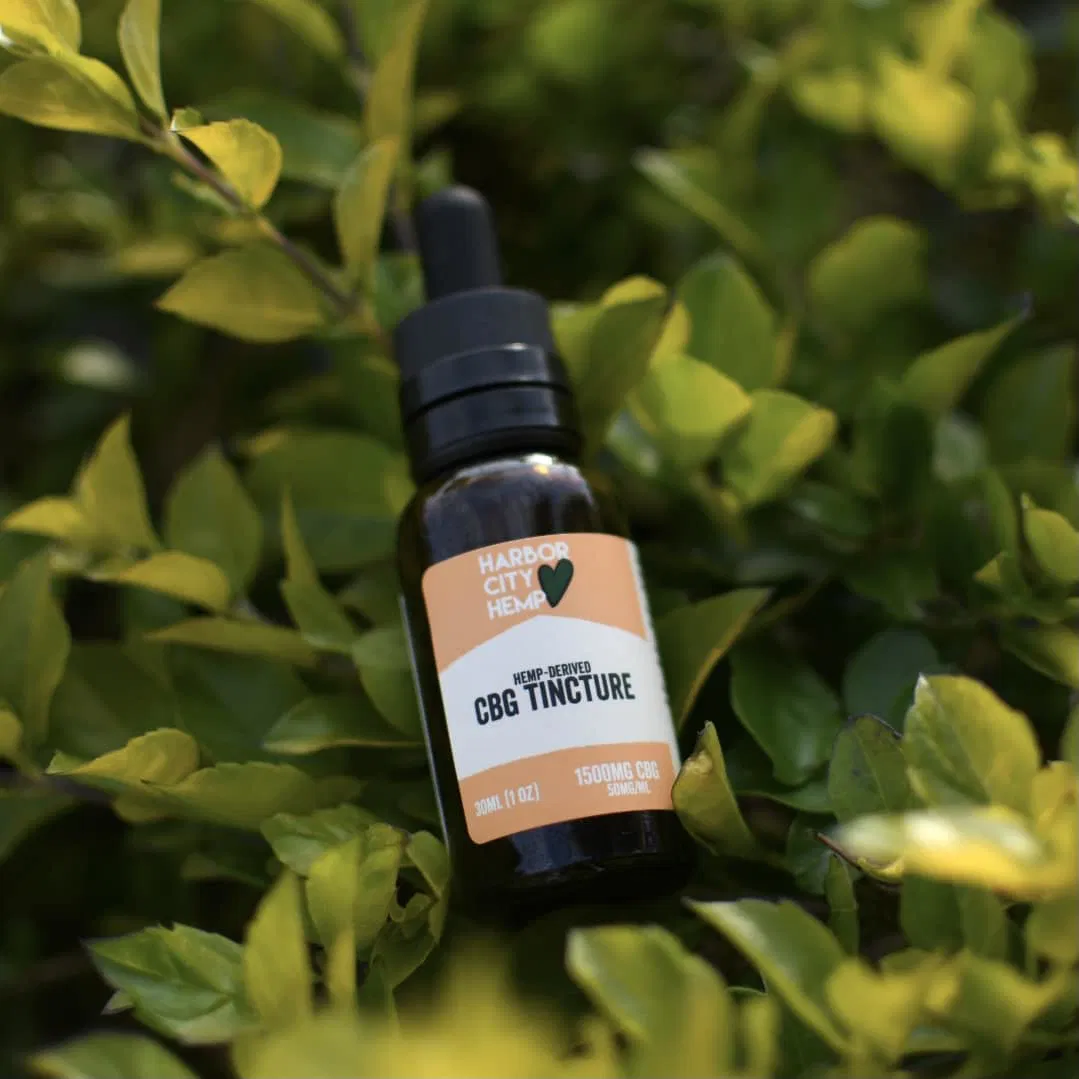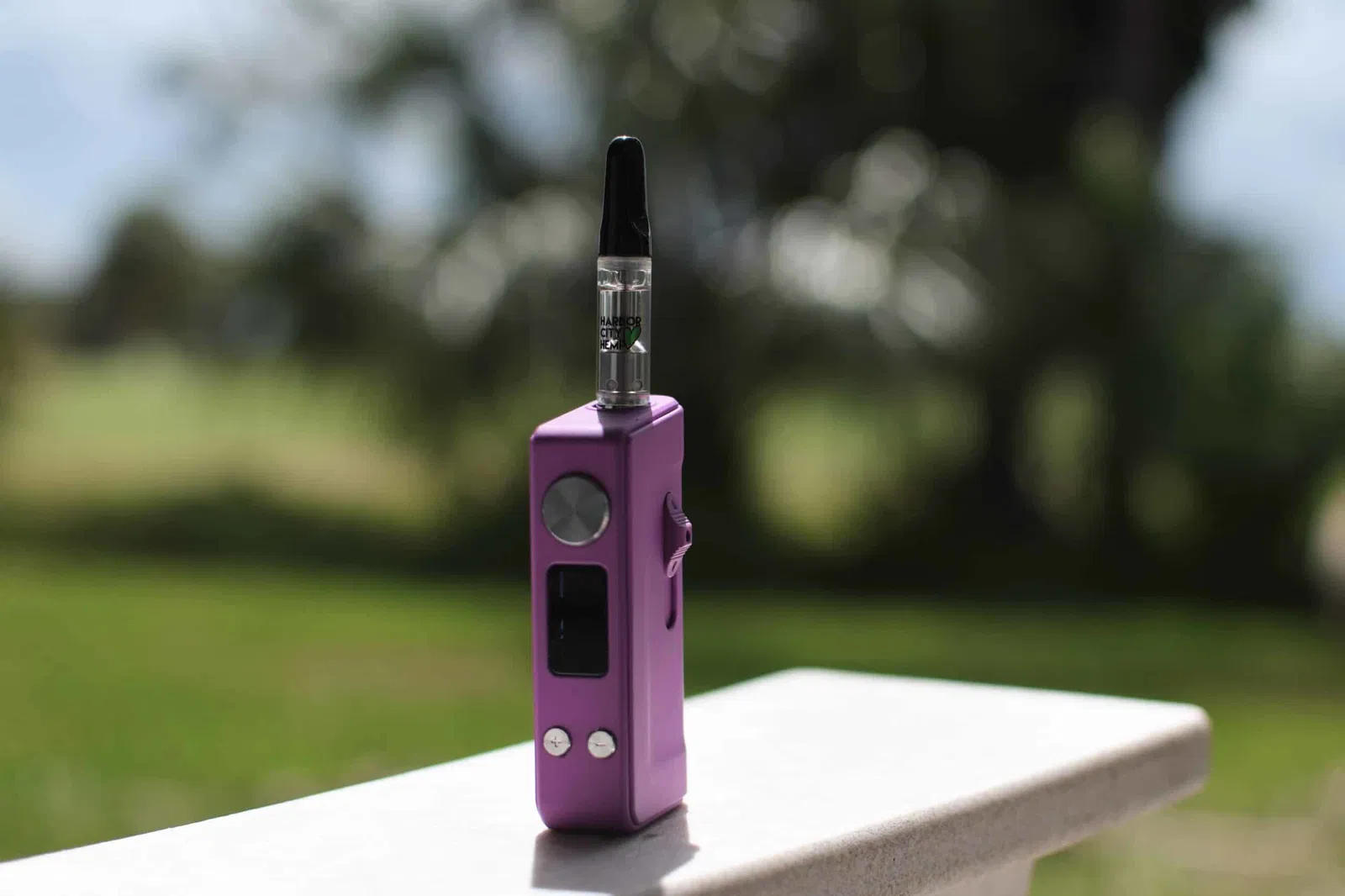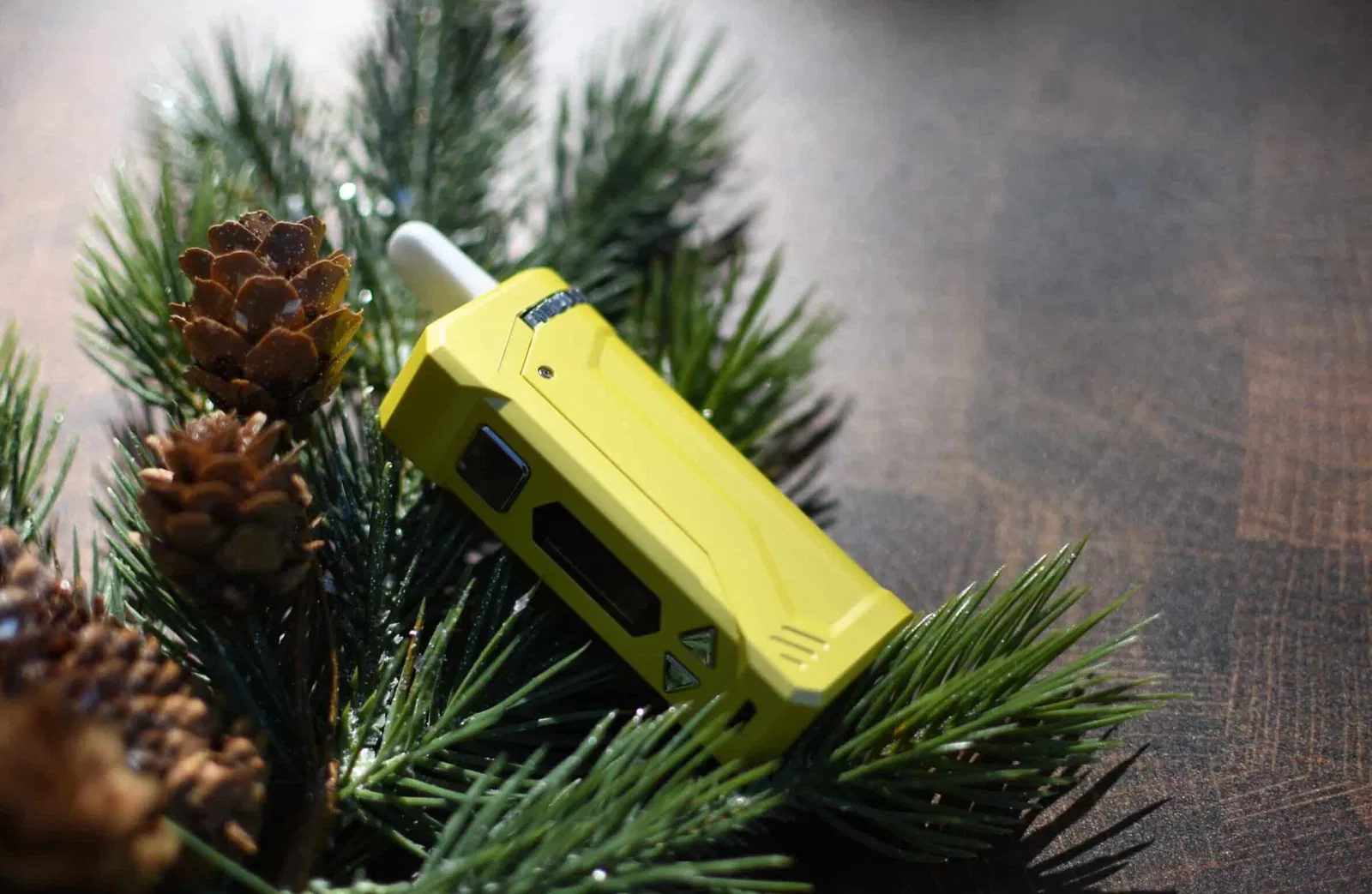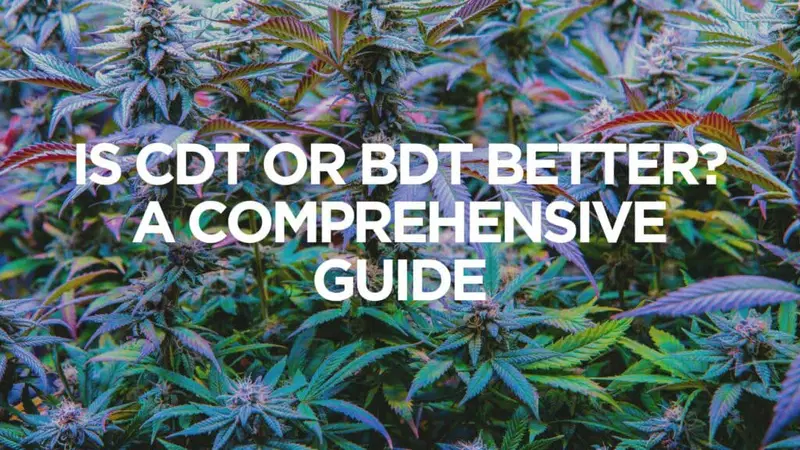Terpenes have recently gained much attention from customers as the cannabis industry continues to grow. Cannabis-derived terpenes (CDT) and botanically-derived terpenes (BDT) are the two main categories of terpenes. Here, we provide insight into how CDT and BDT differ so you can choose the best option.
What are CDT and BDT?
Cannabis-Derived Terpenes (CDT) are, simply put, natural terpenes extracted directly from cannabis plants. On the other hand, Botanical-Derived Terpenes (BDT) come from a variety of other plants—not just hemp plant. They’re essentially terpenes derived from plants like lavender, pine, and citrus fruits.
How are CDT and BDT Extracted?
Let’s break down the extraction processes for CDT and BDT below.
Extracting CDT
The extraction of CDT focuses on preserving the pure essence of the cannabis plant. This process typically uses advanced methods like steam distillation or CO2 extraction:
- Steam Distillation: In this process, steam is passed through plant material. The heat from the steam helps to release the volatile compounds within the plants, including terpenes. These vaporized compounds are then condensed back into liquid form upon cooling.
- CO2 Extraction: CO2 extraction uses supercritical carbon dioxide to pull terpenes, essential oils, and other compounds from plant material. This technique involves using CO2 at high pressures and moderate temperatures to turn it into a state that is neither gas nor liquid (supercritical). This supercritical CO2 acts as a solvent with the plant material, allowing it to extract the terpenes efficiently without leaving harmful residues.
Why do we care so much about keeping them intact? Because these methods ensure that the terpenes retain their full aromatic properties and therapeutic benefits—giving you that genuine cannabis experience directly from the source.
Extracting BDT
On the other hand, BDT are sourced from a wide array of other plants, not limited to the cannabis species. The most common method here is also steam distillation, which is great for capturing the essence of these diverse botanicals without altering their natural structures too much.
Another popular method is solvent extraction, depending on the desired concentration and use of the terpenes.
- Solvent Extraction: Solvent extraction involves using chemical solvents, such as ethanol, hexane, or butane, to dissolve the plant components and pull out the desired terpenes and oils. After the solvent extracts the compounds, it evaporates, leaving the concentrated extract behind. This method can effectively extract a wide range of terpenes and other compounds. Still, it may also extract unwanted materials like chlorophyll, affecting the final product’s purity and taste.
Key Differences Between CDT and BDT
Comparing botanically derived terpenes and cannabis derived terpenes can enhance your understanding of natural remedies. Here’s what sets CDT apart from BDT:
Extraction Methods
CDT is extracted directly from cannabis plants, using techniques that preserve the delicate terpenes and maintain the unique flavor and aroma of each cannabis strain.
Conversely, BDTs are derived from a variety of other plants, often using standard extraction methods like steam distillation. This method is less specific to cannabis and more common in general essential oil production.
Aroma Profiles
CDT offers a genuine cannabis experience, preserving the natural aromatic properties of the cannabis strain. This authenticity can enhance the therapeutic effects associated with specific strains.
BDT, on the other hand, allows for a mix-and-match approach in crafting terpene profiles. This versatility is great for creating desired sensory effects but may lack the complex nature of cannabis-derived profiles.
Cost Comparison
Looking at costs, BDT generally come out on top as the more economical option. The plants used for BDT are often more readily available and cheaper to cultivate than the carefully regulated cannabis plants used for CDT. This accessibility makes BDT less expensive to produce and thus more affordable for consumers. It’s a practical choice for businesses and individuals who need the versatile applications of terpenes without a high price tag.
The Entourage Effect and Terpene Efficacy
The entourage effect is a concept suggesting that all components of the cannabis plant work together synergistically to enhance the overall effects. CDTs are known for their ability to preserve these interactions because they maintain the natural profile of the cannabis strains from which they’re extracted.
Can BDT Replicate the Entourage Effect?
So, what about BDT? Can these terpenes extracted from other plants also offer the entourage effect? The answer isn’t just a simple yes or no. While BDT can mimic certain sensory aspects of cannabis, they don’t naturally include the cannabinoids that are part of the cannabis plant’s unique profile.
However, when BDT is used in combination with cannabinoids, they can contribute to an entourage-like effect under certain conditions.
The key here is the formulation. BDT needs to be carefully selected and combined with cannabinoids to replicate the natural synergies found in cannabis. This means that while BDT might not offer the entourage effect as directly as CDT, with thoughtful formulation, it can still play a significant role in enhancing the sensory and therapeutic qualities of cannabis products.
BDT vs CDT: Which One Is Better?
Deciding between CDT and BDT boils down to what you value most. If you’re all about authenticity and are looking for a genuine cannabis experience with all its inherent benefits, CDT is likely your go-to. However, if you prefer versatility, a wide range of aroma options, and a more budget-friendly solution, then BDT might be the better choice.
Types of CDT and BDT Products
Here’s a breakdown of the types of CDT and BDT products you might encounter and what makes them stand out.
CDT Products
CDT products range from vape cartridges to oils, each infused with terpenes extracted directly from specific cannabis strains. They’re perfect if you’re looking for an authentic experience that reflects the unique properties of strains you know and love.
- Vape Cartridges: Pre-filled with cannabis oil rich in CDT terpenes, these are perfect for on-the-go relaxation or therapeutic use.
- Tinctures: Ideal for those who prefer precision dosing, tinctures allow users to enjoy the benefits of cannabis terpenes alongside cannabinoids.
- Topicals: Infused with CDT, these creams and balms offer localized relief with the natural efficacy of specific cannabis profiles.
BDT Products
On the other hand, BDT products use terpenes derived from a variety of other plants, not limited to cannabis. This makes them incredibly versatile. They’re a fantastic choice if you’re looking to enjoy the benefits of terpenes without the direct link to cannabis.
- Aromatherapy Oils: These oils harness the power of botanical terpenes like linalool from lavender or limonene from citrus fruits, ideal for natural wellness routines.
- Edibles: Imagine enjoying the subtle hints of mint or citrus in your snacks, all thanks to BDT.
- Cosmetics: Skincare products infused with BDT not only smell great but can also offer antioxidant and antifungal properties.
Harbor City Hemp Discount Program
At Harbor City Hemp, we are pleased to offer our customers a discount of up to 30% on all products that qualify for the promotion. Check out our website to see whether you are qualified for our discount program, and if you are, fill out the request form on our site. If you have further queries, be sure to contact us.
We are always happy to help.
Conclusion
If you have read this far, you now understand the distinction between CDT vs. BDT and what terpenes do. We love the idea of keeping all the terpenes exclusively extracted from cannabis. Cannabis-derived terpenes may be more expensive, but they may also provide more benefits, such as the entourage effect. Get yours now at Harbor City Hemp Cartridges.
However, we also like to use a combination of terpenes from different plants. BDT reduces the ultimate price of our products without sacrificing quality or usefulness.
In the end, it is all up to you. Check our CDT Products (Harbor City Hemp Delta 8 CDT Cartridge (CO₂ Extracted Terpenes) and BDT Products (Harbor City Hemp HHC BDT Cartridge).
Remember, use caution around any business that claims to have 100 percent CDT carts. Always verify these claims. Double-check the results of independent lab tests to be sure the terpenes a manufacturer claims to have included in their product are indeed there.
CDT vs BDT FAQs
Are CDT carts better?
CDT carts are often considered better for those seeking an authentic cannabis experience. They preserve the natural terpene profile of specific cannabis strains, offering a richer and more nuanced flavor and aroma. This makes CDT carts ideal for users looking for the full therapeutic and sensory benefits of cannabis.
What are BDT terpenes?
BDT are terpenes extracted from non-cannabis plants such as citrus fruits, lavender, and other botanical sources. These terpenes are used to recreate or enhance certain flavor and aroma profiles in products, offering versatility and often more cost-effective solutions compared to cannabis-derived options.
What are CDT terpenes?
CDT are aromatic compounds extracted directly from cannabis plants. They capture the unique scent and flavor profile of the cannabis from which they are derived, maintaining the integrity and specific characteristics of each strain. CDT terpenes are valued for their ability to deliver the authentic effects and benefits of the original plant.
What is the difference between BDT and CDT?
The main difference between BDT and CDT lies in their source and the effects they offer. BDT is extracted from a variety of botanical sources and is used to mimic or create diverse aroma profiles, while CDT is extracted from cannabis plants and retains the specific terpene profile of the cannabis strain.
What’s better, BDT or CDT?
Whether BDT or CDT is better depends on the user’s needs and preferences. CDT is typically preferred for its authenticity and the unique, strain-specific effects it preserves, ideal for users wanting the full cannabis experience. BDT might be favored for its versatility and cost-effectiveness, suitable for users looking for varied flavor profiles and aromas.
What is Delta 8 BDT?
Delta 8 BDT refers to products that contain Delta-8 THC, a cannabinoid known for its psychoactive effects, combined with Botanical-Derived Terpenes. These products use terpenes from non-cannabis sources to enhance or modify the aroma and flavor of the Delta-8 THC experience, providing users with varied sensory experiences.




